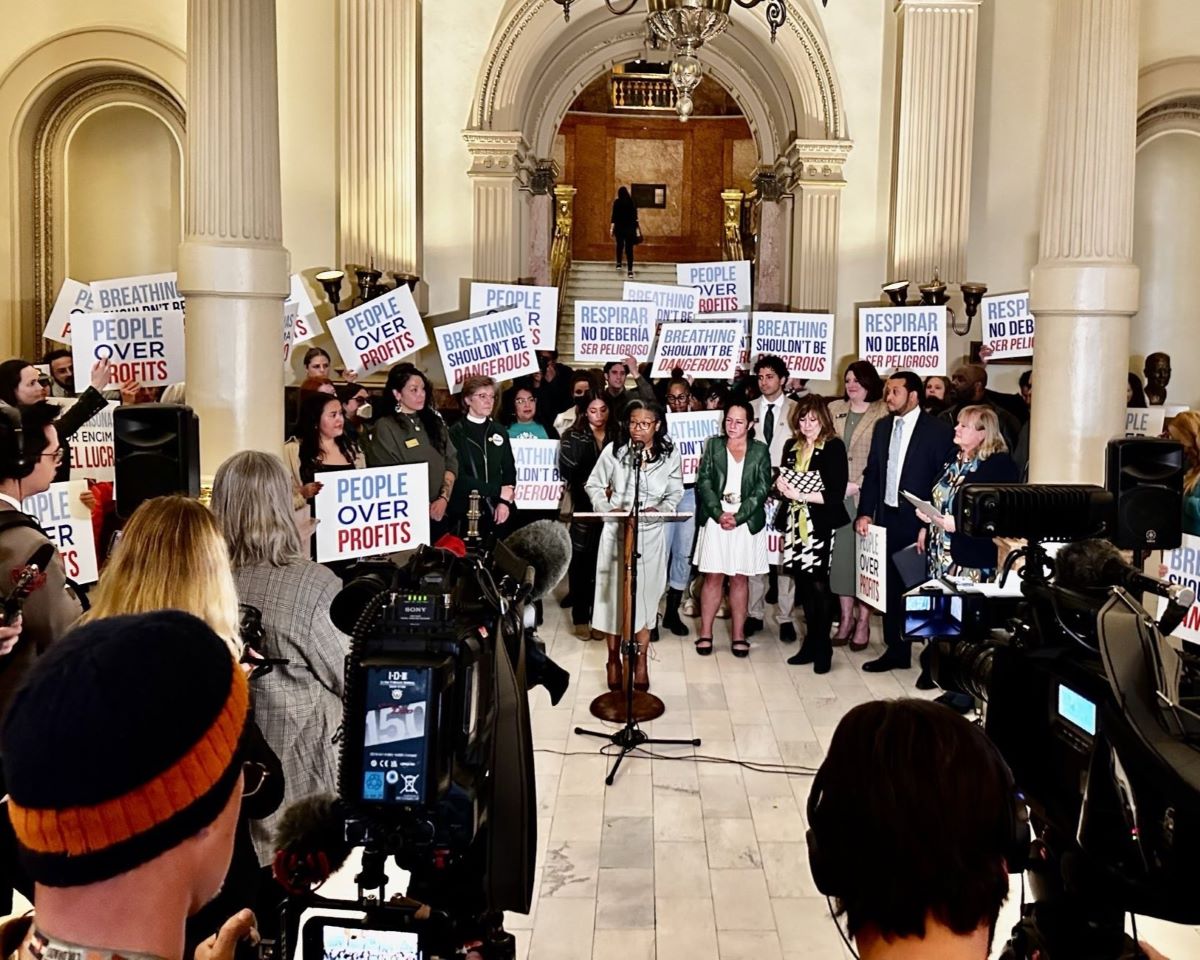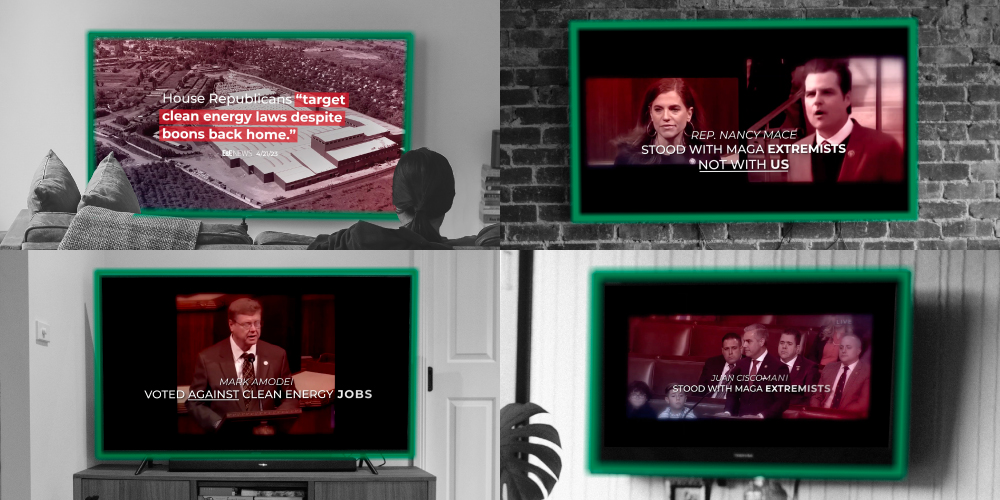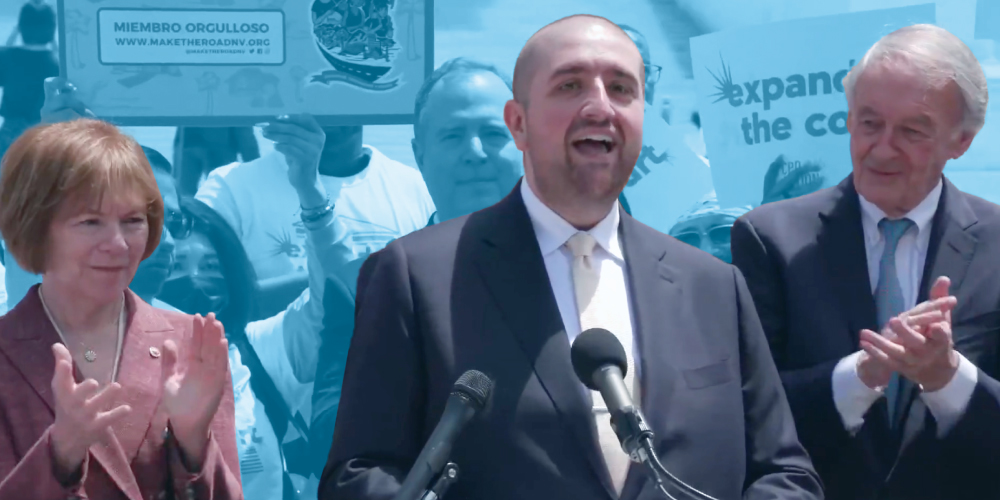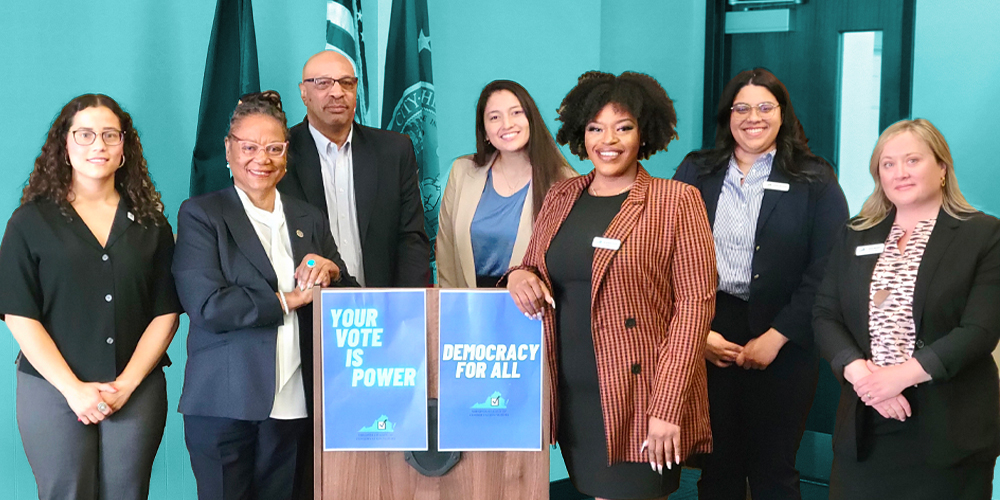
Good Climate News Roundup – 2024 Year in Review
Dec 20, 2024
Help LCV respond to threats to our communities and our climate in 2025 Give Now
 Photos via US Fish and Wildlife Service
Photos via US Fish and Wildlife Service
In recognition of Asian American, Native Hawaiian, and Pacific Islander Heritage Month, LCV is highlighting the advocacy work of Hawaii environmental advocates and the Pacific Remote Islands coalition. The coalition, along with LCV, is advocating for the Biden-Harris administration to expand protections for the Pacific Remote Islands by designating the area as a national marine sanctuary.
The marine ecosystems within the proposed 777,000-square-mile sanctuary include brilliant coral reefs and otherworldly deep-sea species that do not exist anywhere else on the planet. The proposed sanctuary is also home to endangered and threatened corals, fish, marine mammals, seabirds, and invertebrates. Read more about this important preservation effort and the history of Native Hawaiian and Pacific Islander culture and stewardship in this ecologically unique region — and learn how you may help.
In addition to advocating for the preservation of the Pacific Remote Islands, LCV engaged in other critical work during the month of May. Below, you’ll find updates on our efforts to advance progress on climate, environmental justice, and democracy, including:
Read more in this month’s Top 5 stories:

LCV uses a variety of tools to hold elected officials accountable for their votes and keep constituents informed. In partnership with Climate Power, we recently launched two comprehensive ad campaigns to do just that:
The ads shine a light on Republican attempts to defund the Inflation Reduction Act (IRA) and its investments in clean energy projects that are already creating jobs and advancing climate action across the country.
Related: Learn more by watching our quick debt limit debate explainer video.

Since 2016, the U.S. Supreme Court has ruled in favor of polluters, tied the hands of regulators who are trying to shield people from the devastating effects of the climate crisis, and ruled again and again to erode voting and civil rights.
LCV is part of a growing coalition of organizations working to restore balance to the Supreme Court by calling for its expansion through the reintroduction of the Judiciary Act in Congress. This legislation, and the growing movement in support of it, is a response to the Court’s extreme positions that do not match the will of the majority of people living in the U.S.
Just last week, the Court ruled in Sackett v. EPA to undermine the Clean Water Act and put polluters ahead of clean drinking water. This egregious decision will roll back longstanding safeguards for millions of acres of wetlands, which filter our drinking water and protect our communities from severe storms and flooding that are only getting worse with climate change. In the coming weeks, the Court could hand down additional decisions that weaken the Voting Rights Act for the third time in a decade and endanger the ability of state courts and state constitutions to protect our democracy. Consider that:
Watch LCV Senior Director of Judiciary & Democracy Doug Lindner speak during the Judiciary Act reintroduction press conference with coalition members and congressional leaders:
Read Doug Lindner’s statement about the importance of expanding the Supreme Court.
Related: As LCV looks to restore balance to the Court, we also understand the need to ensure integrity in its justices. That’s why we’ve also called for Justice Clarence Thomas to resign in response to recent ethics revelations. Watch that press conference here.

Through the Clean Buses for Healthy Niños campaign, LCV’s Chispa program has been working to ensure clean air and healthy communities since 2017. Thanks to the success of Chispa programs in Arizona, Colorado, Florida, Maryland, Nevada, and Texas — and the work of other organizations in the Alliance for Electric School Buses — the 2021 Infrastructure Investment and Jobs Act included significant investments in electric school buses to be deployed in hundreds of school districts across all 50 states.
The Environmental Protection Agency (EPA) recently announced a second wave of funding for clean school buses with another $400 million in grants. This installment is part of a total $5 billion in eligible funding for the replacement of thousands of polluting diesel-fueled buses with electric, propane, and compressed natural gas alternatives.
Chispa and LCV will continue to work to ensure that the benefits of electric buses and other clean energy advancements reach the people who need them most, especially low-income students, students of color, and school transportation workers who continue to breathe the dirtiest air.
Read about Chispa’s success securing the next round of electric buses.
Related: Chispa Arizona successfully advocated for environmental justice provisions to be included in the Inflation Reduction Act (IRA), including funding to support the planting of shade trees in the hottest communities — securing a $6 million investment, enough to plant and care for about 7,500 shade trees in the state.

A large share of the climate pollution produced in the United States comes from just a handful of big polluting facilities — mostly fossil-fueled electric power plants. Reducing or eliminating emissions from those sources will make a big difference in addressing climate change. Consider that:
To address these issues, LCV is pushing for the equitable and just implementation of hundreds of billions of dollars in federal clean energy investments. Yet, the programs funded by those dollars will only get us part of the way to reaching the science-based goal of reducing climate pollution by 50% by 2030. That’s why we’re also advocating for executive action and federal regulations from the Environmental Protection Agency (EPA).
LCV Vice President of Federal Policy (and former EPA health scientist) Matthew Davis recently responded to the promise of the EPA’s proposed rules to limit carbon pollution from some new and existing fossil-fueled power plants. You can read his statement here.
Davis also recently testified at an EPA hearing, making the case for mercury and air toxics standards for power plants to protect infant brain development, deliver a range of other health benefits, and save lives — particularly in communities of color and low-wealth communities that are more likely to be nearest to polluting power plants.
Similarly, LCV Government Affairs Representative for Healthy Communities Lizzy Duncan testified before the EPA, advocating for strong wastewater discharge standards for coal-fired power plants.
LCV staff members, like Davis and Duncan, are trusted sources of information and will continue to advocate for regulations that complement and strengthen federal investments in clean energy.

At LCV, we know that achieving meaningful progress on climate change requires a just and equitable democracy — one that allows constituents to freely and fairly elect leaders who represent their communities and to hold those leaders accountable for doing what’s right.
We also know that the communities most affected by environmental injustice are most often the same communities that have historically been denied access to the ballot box, including communities of color, rural communities, low-wealth communities, people with disabilities, youth, and elderly people.
This drives our work to build a more just and equitable democracy that’s responsive to all people and their will to protect the planet. One of the ways we do this is by working alongside our 30+ state affiliates as they engage in a wide range of critical advocacy and organizing work, including:
LCV and our state affiliates are committed to improving access to the democratic process to ensure that all communities — especially those that have been historically disenfranchised and harmed by environmental injustice — have a voice at the ballot box. Read more about how LCV state affiliates are fighting to strengthen our democracy.